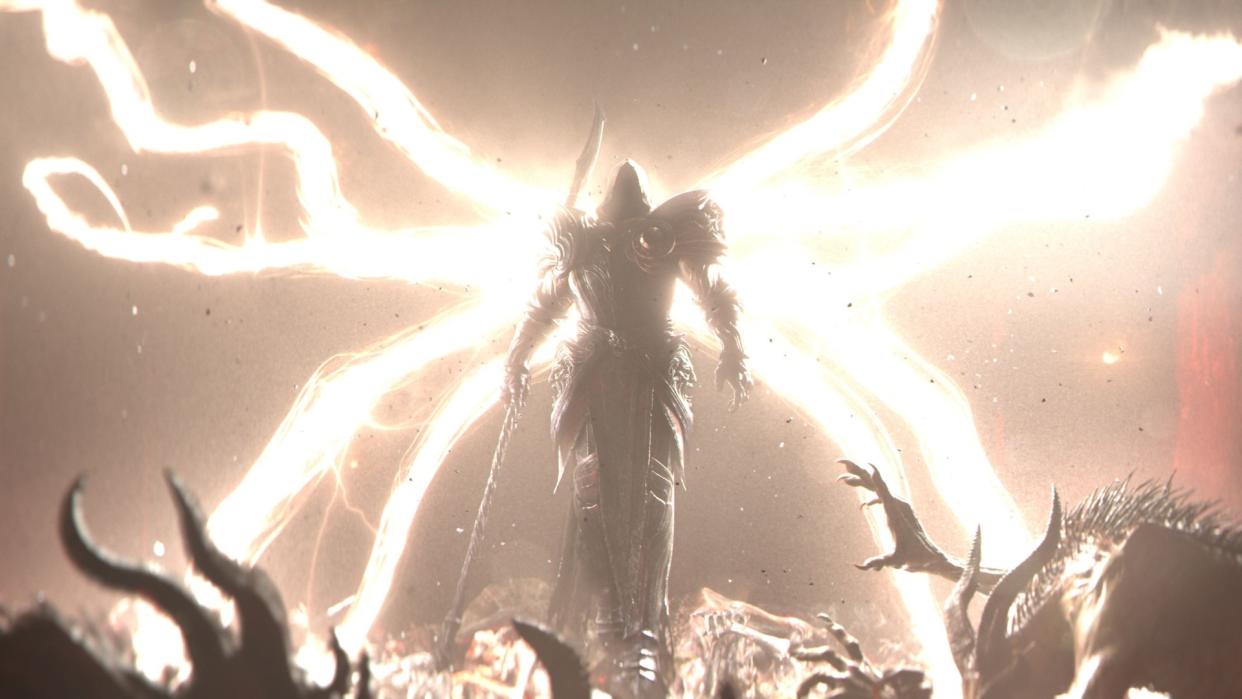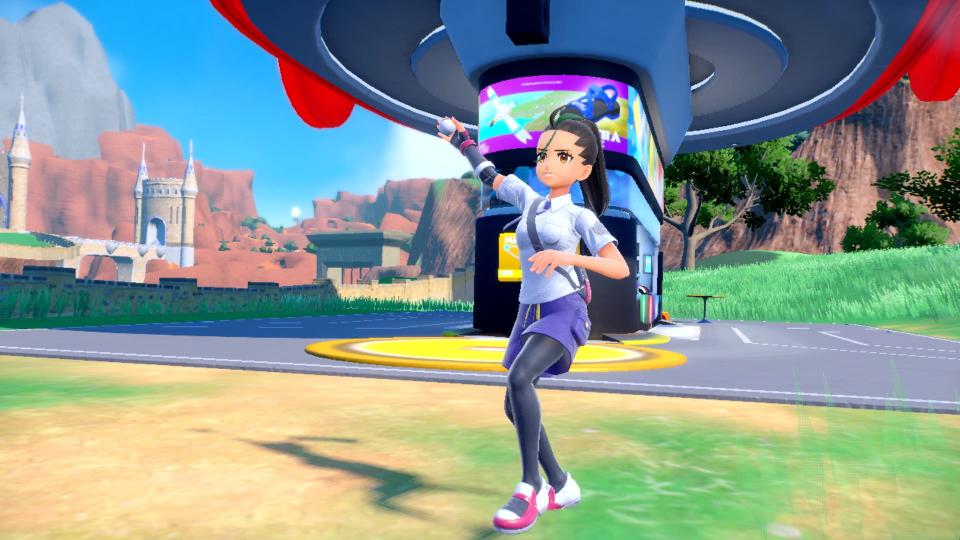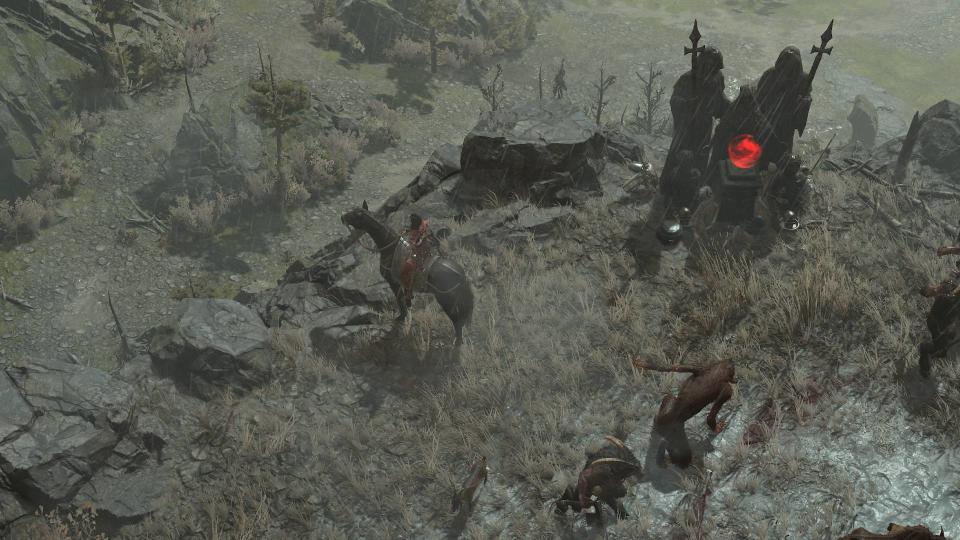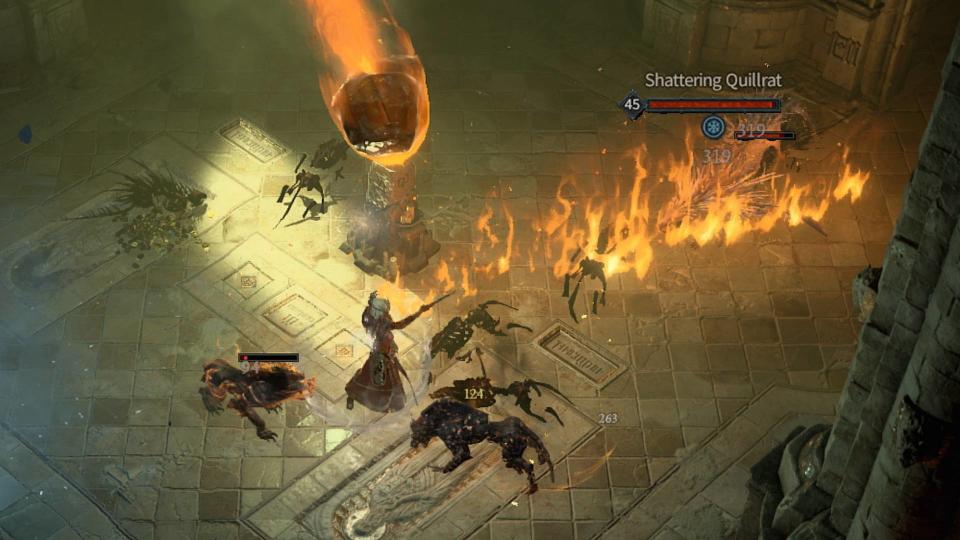Diablo 4 teaches us that less is more when it comes to the action bar

It’s frustrating to be told “no”. Whether or not you’re applying for a job, trying to get gig tickets for a band you love, or trying to build a super-powered ultra-wizard in roleplaying game (RPG) Diablo 4, life’s limitations can be grating and difficult to manage.
However, sometimes restrictions are actually a blessing in disguise. This is true of Diablo 4, which (in)famously restricts players to a limited action bar of six abilities. Though it’s disappointing not to be able to use every face-meltingly powerful spell or terrifying martial technique at your disposal simultaneously, there is a good reason behind these limitations.
By forcing you to keep to only six attacks, Diablo 4 asks you to make some difficult choices. What do you cut? Do you focus on defensive moves to increase longevity? Maybe you go for some buffs to help your allies, or do you decide to be more self-serving? These kinds of choices are what separate the best RPGs from the rest, forcing you to craft your own bespoke approach to the game’s challenges.
While there might be a passing joy in being able to spam all of the Sorcerer spells at once, in practice every character would swiftly lose their identity, damaging the quality of the experience in the long run. Restrictions force players to be selective and methodical in their approach to character building beyond just selecting one of Diablo 4’s classes. This is the real beauty of the system.
The old way

This technique is hardly new and has been a staple of RPGs since the earliest days of the genre.
The Pokémon games are a masterclass in this “less is more” mentality. Famously, Pokémon can only know four moves at a time, ensuring that leveling up becomes a challenge in and of itself, forcing players to consider how exactly they want their pocket monster of choice to perform in battle. For young and bloodthirsty trainers like my tween self, offensive moves were the order of the day. If the attack didn’t have “hyper” or “mega” in the title, I didn’t want to hear it.
Now, as a more seasoned Pokémon fan, I find myself thinking a little harder about where to commit those four slots. In my playthrough of Pokémon Scarlet, I took time to consider which moves were worth keeping, luxuriating in the decision trees that the game presented. Is a versatile Dragonite with lots of different attack types better than a specialized powerhouse?
I took time to consider which moves were worth keeping, luxuriating in the decision trees that the game presented
Should my Gogoat be able to paralyze targets or beat them to a pulp with raw damage? How did these decisions affect team composition?
You’ll notice that these questions are similar to those hypotheticals posed above when discussing Diablo 4. This is no coincidence. All of these questions made for gripping moments of player choice. Regardless of your opinion on the best Pokémon game, every entry in the series has been elevated by this mechanic, going back as far as the originals.
Massively multiplayer RPG (MMORPG) Guild Wars 2 makes ample use of a limited action bar too, forcing players to make meaningful choices within their class. In the context of an MMO, these limitations help Guild Wars 2 blur the traditional tank-damage-healer trifecta, an approach that upcoming Japanese MMO Blue Protocol has also taken.
Choices, choices

It’s in this tradition that Blizzard opted to limit the attacks available to players in Diablo 4.
Ultimately, every choice in the gothic action RPG closes as many doors as it opens. Selecting one node on the skill tree is to choose it over all of the competition. To imbue an item with an Affix is to reject alternatives, and to choose a specific Paragon Board is to prize its mechanical benefits over the others. For every skill your character slots into their build, part of the possibility space is cut away, which feels like it should be a negative, but actually succeeds in making your character feel more unique.
To make a meaningful choice in a video game, we must always give something up
To make a meaningful choice in a video game, we must always give something up. Though this can be painful, it is also vital to giving player actions a sense of weight, consequence, and meaningfulness. Each decision goes on to add weight to the next, by helping you establish the sorts of choices that work for you and the ones that don’t.

While the Diablo 4 metagame certainly prescribes certain “optimal” builds over others, the decisions required to craft those builds in the first place wouldn’t exist without Blizzard’s restrictive approach to leveling and character progression. Even the very strongest builds are themselves, discovered through player action and player choice. It’s this expansive, cascading nature of Diablo 4’s decision points that led us to give the game a five-star review in the first place.
Diablo 4 is unlikely to ever have this problem, thanks, in part, to its emphasis on meaningful limitations. Sure, you can only pick six attacks, but they’re *your* choices, produced by your own thoughts and instincts. This ensures that your Diablo 4 character is your own, a product of your own agency, and nothing can take that away from you.
Looking for more multiplayer action? Our list of the best co-op games has you covered. Alternatively, of you want to find out more about the roots of deliberately restrictive game design, check out our list of the best JRPGs.

